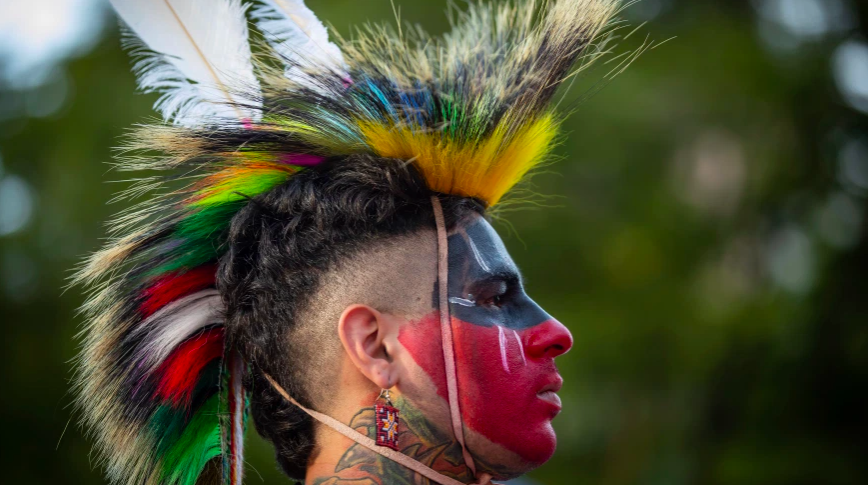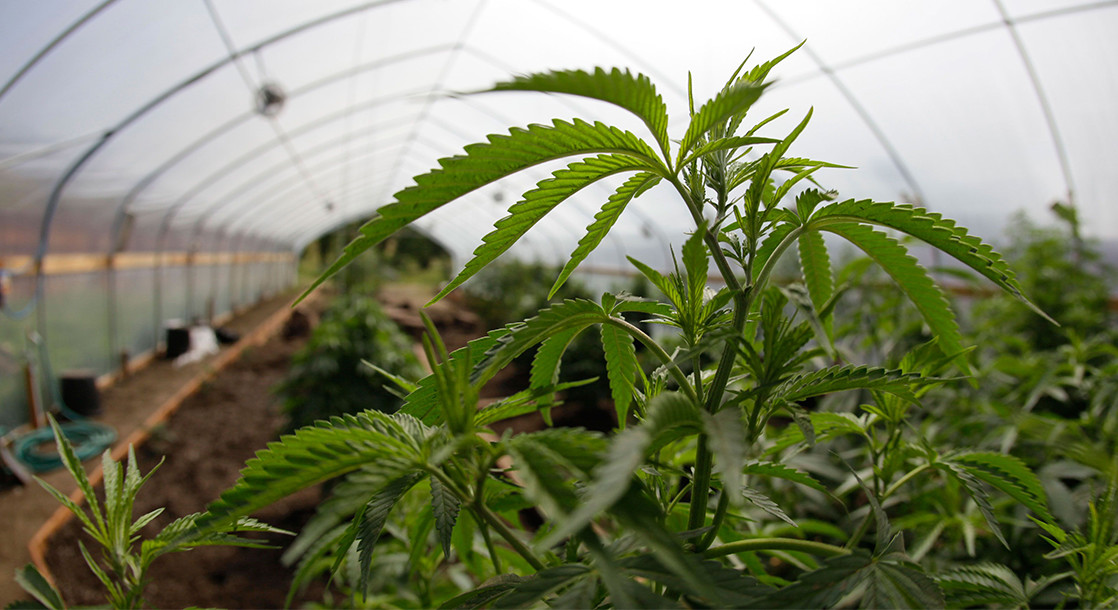Image via
Upstate New York’s St. Regis Mohawk government wasn’t just envisioning dispensaries on its acres when it approved a recent measure to legalize a commercial cannabis industry on Monday.
The 14,000-member community is seeking to establish itself as a “seed to sale” site, with marijuana agriculture included on the tribe’s Canadian border-spanning land. Adults 21 years or older will be allowed to grow up to 12 plants each.
Though it calls itself the first tribe in New York state to authorize adult use of marijuana, the St. Regis Mohawk are not alone in their desire to enter the cannabis business. The Shinnecock Indian Nation has begun work on a dispensary and wellness center on Montauk Highway in Long Island’s Southampton, while the Oneida Indian Nation and Seneca Nation of Indians have expressed interest in selling marijuana in the past. Various Indian nations are already in the cannabis game, growing and processing industrial hemp.
New York State legalized adult-use cannabis on March 31st, but sales are not expected to take place until next year. Political jockeying has complicated the timeline further, and given how badly New Yorkers want to buy legal weed, these delays could prove frustrating for the state’s residents.
So there’s a chance that Native communities — who are not bound by state law — will be the first places to buy legal weed.
New York isn’t the only state whose Indian nations have taken the lead on marijuana sales. In Nevada, the Paiute Nation opened the state’s first consumption lounge, and its largest dispensary until the 2020 opening of Planet 13, the 115,000 square foot dispensary located adjacent to the strip.
The Mohawk’s decision to legalize took place in a community where at least four unauthorized cannabis businesses are in operation, despite receiving cease-and-desist letters from the tribal government. The St. Regis Mohawk are taking a relatively lenient stance towards these unlicensed dispensaries, giving them the chance to shut down and apply for a legal license by July 1st.
The new ordinance — which was first proposed back in 2019 — institutes Tribal Cannabis Exchange to oversee the fledgling industry, and a system for applying for growing licenses, processing, and selling cannabis. Two dozen applicants have thrown their hat into the ring since the new laws were announced on June 28th.
Instead of opening a tribe-owned cannabis company, the Mohawk are looking to empower individual entrepreneurs in their community.
“It would have been easier to follow the practice of other tribes and made this a tribally-owned business, but we have and will continue to support the entrepreneurs in our community,” said Tribal Chief Michael Connors. “We have many tribal member entrepreneurs and we want to give them the opportunity to help develop this industry for the benefit of the community.”











